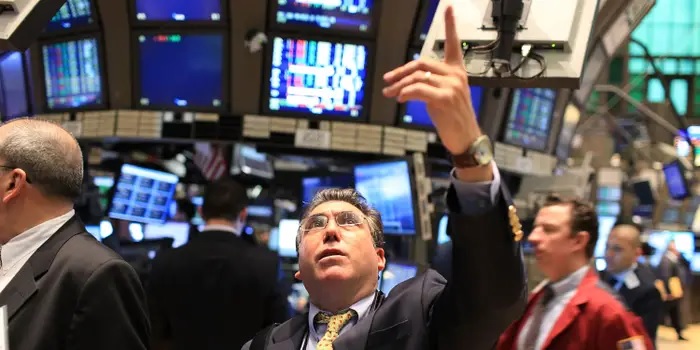If you act with integrity and do so in order to be of maximum service; there is no limit to what you can do.
We live in strange times when it comes to the pursuit of wealth and happiness. The shadow of 80s yuppyism and the corruption that led to the 2007/8 financial crash looms large to this day, and the prevailing narrative around wealth is confused at best. A lot of people struggle with articulating the reasons why they would seek a life of wealth as a result.
We allow politicians and other interested parties to tell us that being rich is bad. That seeking means above above necessity is just greedy and robs someone else of what they need. Meanwhile, in-between flailing 30-second dance routines and makeup tutorials, ‘influencers’ extol the virtues of crypto currency, skincare products and just being fabulously wealthy.
It all points to a culture that doesn’t really know what it wants anymore. The old guard who are in charge, wish to instill a community spirit and wholesome values (to give them the benefit of the doubt). Meanwhile; Gen-Z want to shake their ass on Tick-Tock and get paid for it by a multivitamin company.
The aspirational lifestyle has shifted, but to what exactly? And where do you fit in?
You’ve possibly found yourself in the dilemma of wanting to accrue wealth, improve your living standards and enjoy life; but not wanting others to think you shallow or greedy. The apparent navel-gazing, ‘influencer’ lifestyle that involves documenting your every move doesn’t appeal. You just want to offer value and be recognized for it. You probably feel torn between two poles, and subsequently frozen in inaction. There is another way.
Here are three reasons to seek wealth, that have nothing to do with greed or notoriety. You can use them as motivation and to inform your intentions, as you seek wealth for yourself and your loved ones. I took inspiration for this article from a recent episode of my podcast, featuring the excellent Hannah Chapman. You can check out the full conversations here:
1. You don’t want to be desperate
Making decisions from a place of desperation is a one way street to depression. Despite how some people might seem to get off on their self-proclaimed victimhood: neither you nor they actually want to feel like you aren’t in control of your life. If you have to take a job stacking shelves, or cleaning houses – you’re not going to feel in control and very soon the resentment for your life will set in.
To be clear: I am not throwing shade on those jobs at all!! I’m a big believer that ‘job-shaming’ goes on far too much and needs to stop. Being an entrepreneur isn’t for everyone and we should stop trying to convince people that it is. The issue here is not the nature of the job itself, but that you had to take it.
If you have to make decisions based on a lack of funds, you’ll never be able to do what you truly want to. You will also be living in a state of stress and lack. Being immersed in that energy 24/7 is a trap and will keep you locked in to a cycle of resentment.
2. Break free of the ‘feast & famine’ rollercoaster
This is especially obvious for the self-employed and entrepreneurs, but it holds true for any of us really. You should seek wealth in order to create stability and avoid the cycle of feast and famine.
Independent contractors will know how this feels: you land a contract/job for a decent sum of money. Instantly, before it’s even hit your account, you’re spending it on several different things.
You’ve already created a plan for giving it away!
The ‘famine’ periods stoke this need to satiate our spend-lust, when funds finally do come in. We end up saving nothing for a rainy day or our future, and the cycle starts over again.
Once more: this will lead to resentment and stress, not great mindsets from which to manage your business. And by “your business” I am also referring to people in a job because, despite working for someone else, you are still conducting business on your behalf. You have a reputation to uphold and a career to build.
If you are an entrepreneur or otherwise self-employed; start a habit of financial planning. You need to get smart about putting money away for tax, your pension, future uncertainty etc… If you work for someone else and they offer a generous pension scheme, health plan and so on: you can still adopt this mentality. See a portion of your wages, however small, as being there to further stabalize and insulate you from fluctuating finances.
Now more than ever, we should all be aware of the temporary nature of our incomes. No matter how ‘tenured’ you might feel in your current situation, the rug can be pulled under dire enough circumstances.
3. Take yourself out of ‘decision overload’
You’re not the best at everything. Sorry. None of us are. Why then, do we so often try to manage our lives, businesses, relationships by ourselves?
We all have a zone of genius, but many of us are kept from being in it by insufficient wealth. We end up fighting all of the fires, lurching from one problem to another, without giving any one issue our proper attention. That’s why we need to help of others, and that’s also why we need to have the wealth to pay for it.
We are so used to being able to google things and find “free” advice online, but this is a misnomer. It’s a false economy. When you are able to hire people to make those decisions for you and solve those problems that are most aligned with their zone of genius, you are free to spend more time in yours!
By doing this, there is no end to the progress you can make. My good friend and mentor Greg s. Reid told me a story once about a billionaire who became the world champion at Wii Tennis. Why? Because he had honed his zone of genius so well, that he was incredibly valuable. With his resources he employed others who could bring their own genius to his business. He therefore had so much spare time that he could become the world champion at a computer game.
You don’t have to be the world champion of Wii Tennis, but the point is: by having to make all the decisions, you will find yourself very quickly backed into a position of overload, overwhelm and shut down. You’ll be bogged down so much, that the work people actually pay you to do will suffer, and your value/stock will drop.
Having the resources to outsource those decisions and that work to the best people, will enable you to do what you do best and allow you to charge a premium for your time, by bringing your zone of genius to serve someone else.
I could go on. There are so many reasons to seek wealth, that have nothing to do with personal greed. It all comes down to intention and why you are seeking that wealth. If you act with integrity and do so in order to be of maximum service; there is no limit to what you can do.










